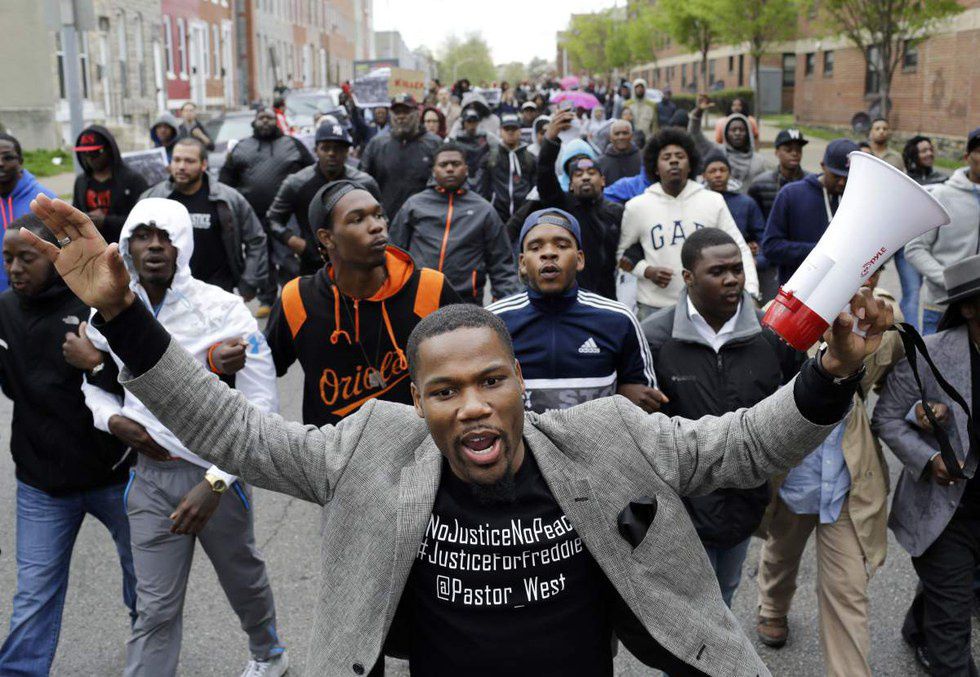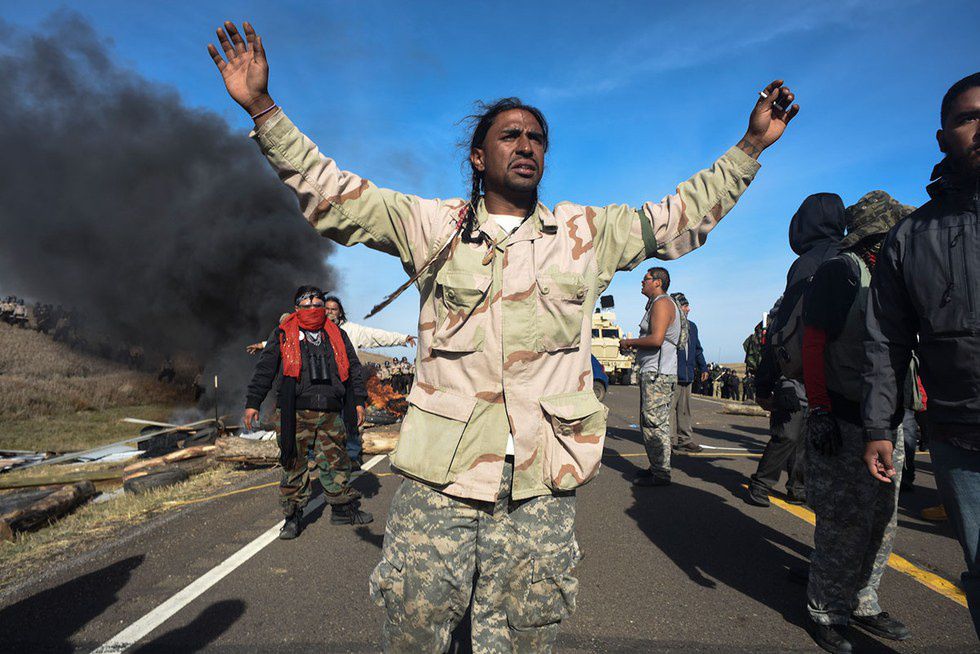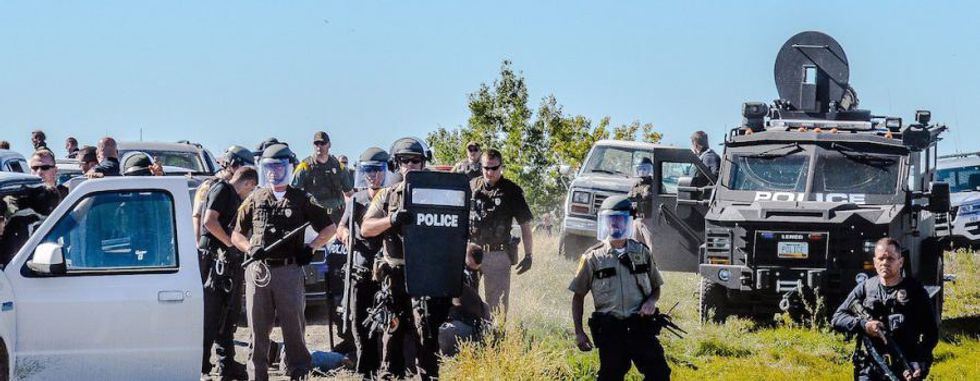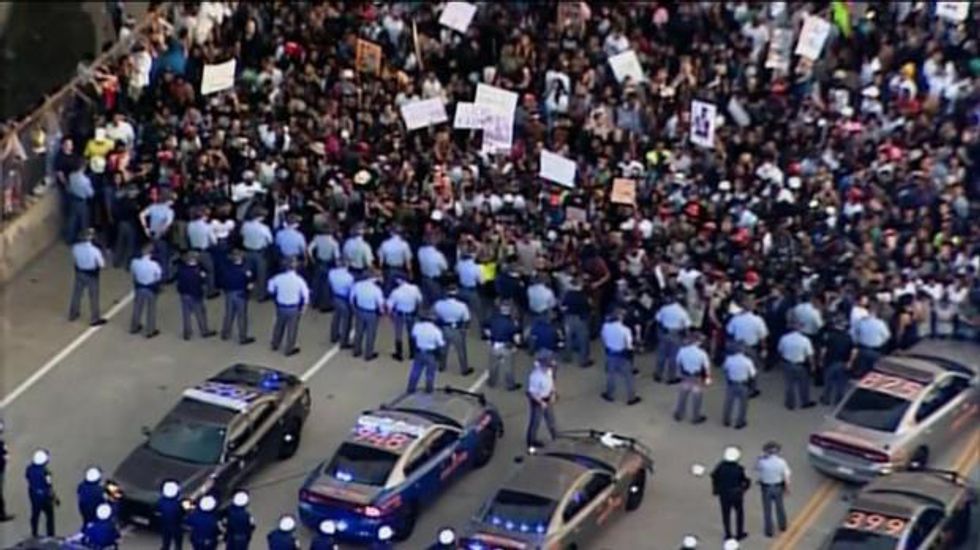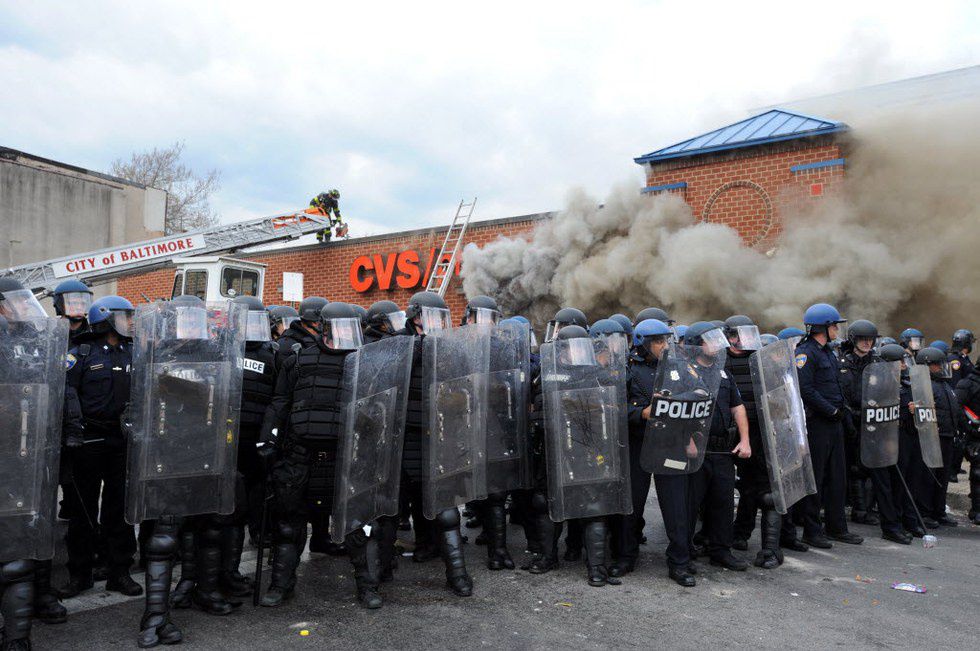When protests emerge, how do we deal with them? When a group of people comes together to voice their opposition against something, how do we as a country respond? We hear out their concerns and either do what they want, do what we (the other side) want, or meet in the middle. While one of these three outcomes always occur, it is how we get to that outcome that the people see and hear about.
Two protests come to mind: the Baltimore protests protesting police brutality against African Americans and the North Dakota pipeline protests protesting an oil pipeline being built through sacred grounds and through their main water source. I compare these two events because of how these protests were responded to. By police force. While the reasons the police were involved were different, the idea that to come to a conclusion, we need to present force is the same.
On April 27th, 2015, many people will remember when West Baltimore turned into a war zone. These protests were in response to the death of Freddie Gray, an African American who obtained injuries to the neck and spine while being transported by police. Gray later died that following day. The clash between protesters and police happened downtown when a few violent protesters began throwing rocks at police and damaging police vehicles. These protesters were met with thousands of police and Maryland National Guard troops flooding into downtown Baltimore. To summarize my point, protests are a way for people to have their message heard by the government and the nation. The protesters were able to get their message across, however, their message was put in the back seat due to the violence.
In North Dakota, the Standing Rock Sioux Tribe has been protesting the construction of an oil pipeline that would go through sacred burial grounds and their main source of drinking water - the Missouri river. Police and other groups have been called in to control and at times remove the tribesmen from the premise. Armed personal, attack dogs, armored vehicles, and much more have been brought to control this peaceful protests. Many of the tribespeople have been arrested while performing acts such as praying. Recently, while protesters were camping by the river in front of where they would be building, riot police and armored vehicles cleared the camp using tools such as pepper spray, tasers, beanbag rounds, and sound cannons. The government responded to these peaceful acts with force.
Even on a larger scale, not all negotiations and peace talks are peaceful. Wars are in essence, one side versus the other with opposite ideas about who is right. Whether we are arguing against police brutality and discrimination or oil - what can make someone rich or destroy the environment, we should never resort to force. Only as a very last resort when all other options are exhausted.




